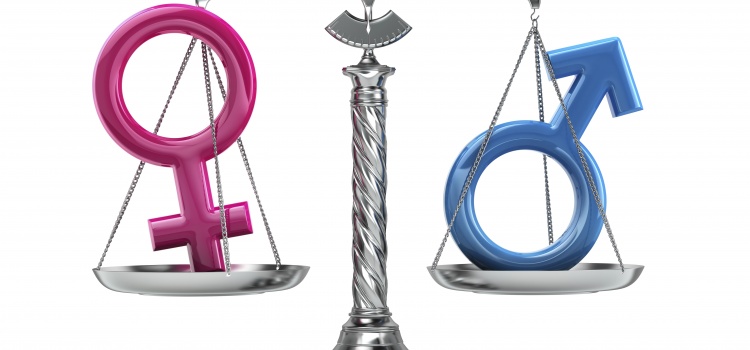 Does addiction affect men & women differently?
Does addiction affect men & women differently?
Addiction does not discriminate, it doesn’t care if you’re black or white, if you are rich or poor or if you’re male or female. All of us have the capacity to become an addict, some of us are, have or will become addicted to something at some point in our lives. Addiction is the ingestion of a substance or the engagement in an activity that may seem pleasurable, but that continued compulsive use results in issues with normal every day life, in the form of relationships, work responsibilities and health. Addiction can be separated into physical and psychological addiction. For example a substance may have a physical influence in the shape of withdrawals after going without for a period of time. However many addictions are triggered by a psychological need and most addicts are influenced initially by their mental and emotional state. The specific reasons people become addicted to substances or behaviours varies, but gender most definitely has an influence on the type of addiction, the pattern of the addiction and the journey of recovery.
Addiction was once considered to be a primarily male issue, but research and studies show that women are actually much more susceptible to addiction and female addiction can actually be much more dangerous both physically and psychologically. Much of the older research conducted relates specifically to the male population and studies come from a male perspective. There was a notion that women didn’t really become addicted, over the past number of years this has changed and more and more women are addicts and in need of treatment.
We all know that men and women are very different creatures, mentally, physically, spiritually, socially, emotionally and the cultural and life experiences each sex has are often polar opposites. All of these elements have an impact on an individual’s potential for addiction, how the addiction manifests and their likelihood of overcoming the disease and achieving sobriety. So without any doubt it is very obvious that addiction absolutely affects men and women differently, because they are different. Gender has a bearing on not just the effects or severity of someone’s addiction but its origins and the path of treatment and recovery.
Addiction and the Body
Biologically men and women have a very different make up and because of this the effects of a substance on both sexes are different. Some drugs have similar impacts on people’s bodies but science is clear that due to our unique composition, they effect everyone differently. For example a woman’s body does not metabolize drugs in the same way a man’s body does and the slower a substance metabolizes the longer and greater an effect it has on the individual. Specifically in the case of alcohol, women have smaller bodies and often cannot consume the same level of alcohol as a man, it also means that blood alcohol content in women is greater even if the same quantity of alcohol is consumed. This also means a higher concentration of acetaldehyde in women’s bodies which results in worsened side effects and greater possibility of complications such as organ damage.
Another significant biological factor is that estrogen plays a significant role in drug abuse and addiction. Estrogen increases the amount of dopamine released when a drug is consumed and we know from research that the release of dopamine plays a significant role in the use and abuse of drugs. If the dopamine release, and as a result feelings of pleasure are magnified for women, it means that women are more susceptible to becoming chemically dependent on their drug of choice. Studies and research conducted with laboratory animals suggest that the female animals were much more aware of the rewarding properties of drugs being ingested; the reason for this was the levels of estrogen in the female body which as we have explained released greater amounts of dopamine. The receptors in the brain play a huge part in addiction and women’s receptors are much more active and as a result the signals of pleasure from drugs and alcohol are far stronger. The research determines that biologically women are much more vulnerable to developing an addiction, with stronger signals and pleasure the need for the substance increases and cravings experienced considerably more intense.
A limited number of scientists dispute that women are more likely to become addicted and actually affirm that men are two to three times more likely to becomes addicts than women. Science feels this is down to the pattern of use and abuse and reasons why an individual begins taking a substance and the likelihood of them taking that substance. Men are seen to be more likely to use drugs, with greater opportunities. However these particular scientists believe that in cases where women are addicted the problem is much more severe. The majority believe that when addicted females use drugs much more frequently and often focus on harder drugs as opposed to men. All the evidence demonstrates that biology is a substantial factor in the findings that women are much more serious addicts, in terms of severity, quantity, prevalence and potential for treatment and recovery.
The Social Influence
While it is clear biologically there is a difference between the sexes, social influences also play a major role in addiction. Males and females experience very different lives, even those who have grown up or live in the same household. Social norms create different standards and patterns for the sexes which cannot be ignored as they influence our potential to use and abuse various substances. Studies suggest that women have less access to objects of addiction than men do, which in theory should reduce their potential to become addicts. However if presented with opportunities to use or take part in addictive substances or behaviours women are no less likely than men to practice such behavior. Research shows that the reasons the sexes become addicted are different in terms of social and familial influences. Many women who become addicted have a history of physical or sexual abuse and or domestic violence. The emotional and spiritual differences also contribute, as women place a greater significance on their relationships and such relationships good or bad can affect additive patterns and possible recovery.
Socially men in general are more likely to take risks and take part in dangerous or risky behaviour, however women by nature and because of social norms are less likely, as such behavior is not socially accepted. This is interesting because of the reasons people begin taking drugs and why they become addicted. If men take drugs for a rush, for fun or just to experiment, their emotional and mental state is probably less likely to require a need for comfort and pleasure from these substances; as a result they should be less likely to develop a substance abuse problem. However women usually take drugs not for fun or adventure but to relieve stresses, pain or emotional trauma. The majority of women who become addicts began taking a particular substance as a form of self-medication. The reasons an individual begins to use a substance can have a massive bearing on their potential to become an addict and to genuinely recover from the addiction, as often there are mental and emotional issues that brought about the use in the first place.
Patterns of recovery & treatment
The evidence shows that addiction affects women and men differently biologically, psychically, socially and emotionally. But what about recovery and the process of treatment between the sexes. There is conflicting evidence and statistics with regards to which sex is more likely to seek treatment. Some researchers believe that women are more likely to seek help when addicted, while others assert there are far greater barriers to treatment for women and as a result they are much less likely to enter a treatment program.
The Journal of Substance Use and Misuse found that women are more likely to comprehend the need to seek help, while men are less likely to understand this need. The cultures that the sexes experience can influence this, as men have to be tough and asking for help or admitting they have a problem is a sign of weakness. Women culturally are more open to admitting defeat and culturally it’s ok to display weakness, so they have less stigma attached to asking for help. Many experts believe men are often forced or coerced into seeking treatment, whereas women ask for help and enter programs voluntarily. On the other hand the stigma attached to addiction, particularly for women may deter them from admitting there is an issue due to the shame and possible judgement.
Another study conducted by the American Journal of Drug and Alcohol Abuse determined that addicted women are often home-makers, living with a spouse who has or does abuse a substance. Women living this life might struggle to recover from their addiction because embarking on recovery may mean leaving loved ones and those dependent on you behind. Having children or others to care for often gives women an excuse to leave treatment early and most women do not stay in a treatment program longer than 30 days. The prevalence of a spouse also abusing drugs makes a successful recovery extremely difficult. If a woman returns to an environment where substance abuse is the norm then it will be even more difficult to remain sober.
The stigma attached to addiction for women is similar to the stigma of sex. A female addicted will almost always be criticized and judged much more severely than a male, as women are expected to conduct themselves in a particular way, particularly because they are seen to be caregivers and nurturers. Reckless and irresponsible behavior among women, for many people do not go hand in hand. Reckless or dangerous behavior conducted by a man seems to be more easily accepted, almost as though it is to be expected. It may be because males are seen as the dominant sex and therefore their decisions are not ridiculed in the same way a woman’s are. Women themselves are much more judgemental of other women, there is an expectation when it comes to being mothers, wives, sisters and daughters. Women are also more likely to make an excuse for a man than a woman, cultural norms mean that irresponsible, deviant conduct is just not acceptable. This judgement, stigma and shame is present for all addicts but it is often magnified for women. This can serve to inflame an already dangerous addict or cause a barrier to seeking help, because denial and secrecy is easier than admitting the truth.
Gender & the journey of recovery

As we have seen there is conflicting evidence and differing opinions with regards to addiction and gender. There is no clear-cut definitive answer to many of the questions posed and this is simply due to the complex nature of addiction. Some believe men are more likely to enter treatment, others disagree and feel women are more likely to avail of a treatment program. Between the sexes there are different reasons for entry and differing reasons for not entering, patterns have changed and continue to do so, simply as a consequence of society continually evolving. Recent figures do however show that men make up 70% of the treatment population for alcoholism. Women are also outnumbered for treatment of drug abuse four to one.
While more men are entering treatment programs than women, evidence shows that women have a greater chance of remaining sober and fully embracing recovery and sobriety. The disparity is actually quite high with women being nine times more likely to remain abstinent compared to men being three times as likely. The relationships between men and women also have an impact on patterns of addiction and the potential for a full recovery. Many women who become addicts were initially introduced to the drug or behaviour by a man in their life. This influence of males in their life highlights the need for re-evaluation of relationships when embarking on recovery. Harmful, codependent relationships are detrimental to a successful recovery. As we have seen women’s inherent need to care and nurture can make them vulnerable to such toxic relationships, as even in the worst situations there is a need to save and cure, despite being addicted themselves.
Addiction and recovery specialists recommend that regardless of how seemingly healthy or the potential for a positive relationship, that those in early recovery refrain from new relationships. Entering a new relationship and taking focus away from an individual’s recovery can damage the process and leave them vulnerable to relapse. In Alcoholics Anonymous it is advised that the 12 Step Programme for recovery be completed and individuals have been sober for at least one year, in addition to this it is important that a personal level of emotional sobriety has been achieved. Those who have been over a year sober and who have worked the steps may feel ready to start of a romantic relationship, the danger is when this happens with newly sober addicts and is referred to as the “13th Step”
“The 13th Stepping is not an official part of the program of Alcoholics Anonymous (or any 12 step group). It is said to occur when somebody who has had more than a year of sobriety tries to start up a sexual relationship with somebody who is new to recovery- or less than a year sober. Sometimes relationships like this develop in AA, but they are viewed negatively and are not a good idea for either of those involved.”
Relationships at any point in early recovery are risky territory, there is a danger of codependency which is associated with addiction. As a recovering addict it is highly possible to become the codependent in a relationship with another in recovery. Often it is easier to concentrate on someone’s else’s addiction and struggles than your own, and one’s time can be dangerously invested in saving them rather than yourself. Concentrating energies on keeping someone else sober might actually cause an addict to jeopardize their sobriety and relapse. Equally as dangerous is that the person you’ve been focusing on does not stand independently in their recovery and becomes vulnerable to relapse. Worse case scenario is that as a consequence the other person in the relationship also relapses due to despair and a feeling of failure. Another factor is that addiction is also a disease that makes people extremely self absorbed. A healthy relationship requires an equal partnership, mutual respect and effort from both parties, often times a recovering addict is not capable of this. The failure of such relationships is damaging to self esteem and this is why it is important that an addict has addressed their self centred attitudes and learnt to have a balance in their lives. This is why emotional sobriety is so important in maintaining sobriety and living a balanced life.
The potential complications arising from both sexes interacting highlights the benefits of keeping treatment and recovery programs separate, as it could serve to enhance both genders potential for recovery. For women the emotional and mental sensitivity that can cause addiction, may also be the reason that they achieve solid sobriety. Women have the capacity to achieve a greater emotional sobriety which can be paramount in maintaining a healthy recovery. Evidence shows that the introduction of relationships during recovery makes many women more likely to relapse than if they stay single. The figures overall show that regardless of external factors women are less likely than men to relapse, reinforcing the fact the relationships with men particularly those also in recovery can prove damaging to a woman’s sobriety. Treatment programs are developed with much more specificity, based on gender, types of addiction, mental health issues and more. Having gender specific treatment programs also means that men and women can feel more comfortable in sharing their stories, particularly when it comes to sensitive issues such as sexuality, social issues and or domestic violence. Openness is essential and honestly communicating allows an individual to truly embrace the treatment and recovery process.
